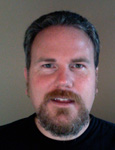"How do you know when to stop doing research," I asked her, "Don't you keep finding new sources?" "Of course," she said. "You always find new material. Your research is done when it stops making a difference to your interpretation." Since then, I've found that a number of historians that I admire have a similarly pragmatic criterion. In The Landscape of History, for example, John Gaddis writes, "Some years ago I asked the great global historian William H. McNeill to explain his method of writing history to a group of social, physical and biological scientists attending a conference I'd organized. He at first resisted doing this, claiming that he had no particular method. When pressed, though, he described it as follows:
I get curious about a problem and start reading up on it. What I read causes me to redefine the problem. Redefining the problem causes me to shift the direction of what I'm reading. That in turn further reshapes the problem, which further redirects the reading. I go back and forth like this until it feels right, then I write it up and ship it off to the publisher. (p.48)
If the idea of exhaustive or complete research ever made sense, it doesn't any longer. Around the time that I asked Harriet about how I would know when I had finished my research, I also did a Google search for "Chilcotin," the place I was writing about. I got about 2,000 hits and looked at each one of them. If I were to start the same project today I would find far too much material to wade through. (Google now indexes 543,000 pages that mention the Chilcotin.) More to the point, new material is spidered by Google at an exponential rate, whereas my ability to read through it is increasing in a linear fashion at best. By the time I finished the study there would be far more unread material than when I started it.
One of the consequences of the infinite archive (or of what Roy Rosenzweig calls the "culture of abundance") is that we can't wait to run out of sources before ending a line of inquiry. We can't even pretend to do so. Instead, we have to focus on how much new information we are getting, on average, from what we're learning. Following the work of CS Peirce and William James, Gregory Bateson famously defined information as "the difference that makes a difference." When it stops making a difference, it's no longer information.
Tags: bits | convergence | information | pragmatism
